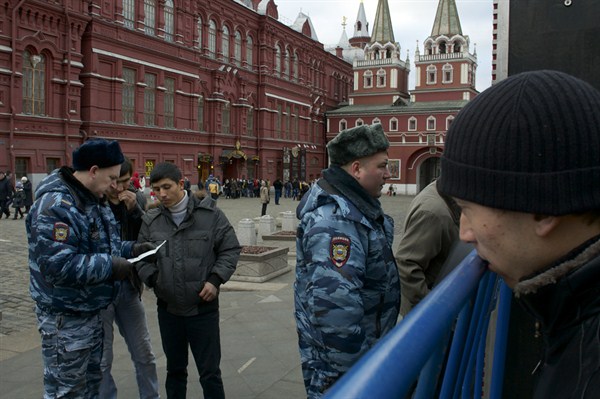Earlier today at the World Economic Forum in Davos, Switzerland, Russian Deputy Prime Minister Igor Shuvalov acknowledged that Russia is bracing for a rough year. “We will survive any hardship in the country—eat less food, use less electricity,” Shuvalov said. Russia, whose economy has been pummeled by falling global energy prices and Western sanctions in response to the ongoing conflict in eastern Ukraine, has seen a steep drop in the value of the ruble since last month.
But Russia is not the only country affected by the ruble’s collapse. Russia under President Vladimir Putin has been one of the world’s leading destinations for immigrants. The vast majority come from the former Soviet republics in Central Asia and the Caucasus, all of which are much poorer than Russia. While the conditions faced by migrant workers from these countries are often grim, remittances from Russia remain an important source of income throughout the region.
As Shaun Walker and Alberto Nardelli reported in The Guardian this week, nine countries, all of them in the former Soviet Union, are directly affected by the ruble’s decline. According to the World Bank, Walker and Nardelli wrote, “21% of Armenia’s economy, 12% of Georgia’s, 31.5% of Kyrgyzstan’s, 25% of Moldova’s, 42% of Tajikistan’s, 5.5% of Ukraine’s, 4.5% of Lithuania’s, 2.5% of Azerbaijan’s and 12% of Uzbekistan’s, rely on remittances.” The projected cost of Russia’s currency slide to these economies in 2015 could be as high as $10 billion.

